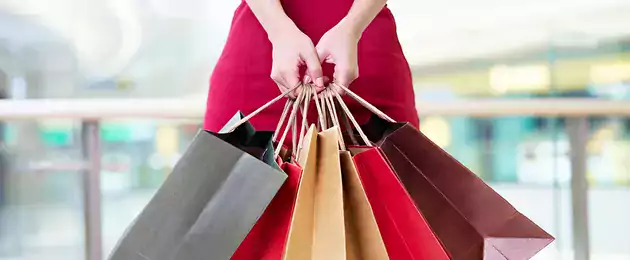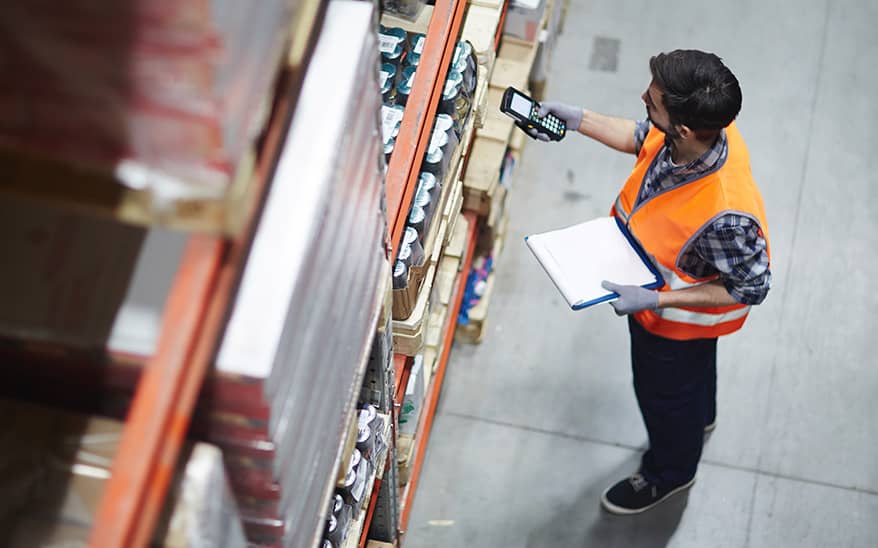Back to Business: How Can a Luxury Retailer Bounce Back?
- 8 December 2020
- By Manhattan Staff

According to recent figures, high street footfall remains subdued in England, with those shoppers who are making it out, more likely to now shop with a purpose.[1] This means that all retailers, especially non-essential retailers like the luxury sector, need to make every effort to be as ‘easy to do business with’ as possible. Craig Summers, UK Managing Director, Manhattan Associates, explores how this can be achieved.
Luxury retailers are struggling to rebound from the impact of the global pandemic. Burberry, for example, has taken a hit since the beginning of the pandemic, with like-for-like sales across its stores nosediving between 40% and 50%.[2]
Online fashion retailers on the other hand, have reported a different story. Ecommerce is continuing to outperform perform pre-COVID-19 sales levels, with many online retailers still experiencing up to 30% higher sales[3] than from the start of the pandemic and numerous delivery firms creating additional jobs[4] to support the continued boom.
Considering the customer experience
Historically, luxury retailers have taken drastic measures to avoid discounting their stock for fear of tarnishing their elite and exclusive reputation. Now, store closures and fewer sales have left these brands with greater volumes of stock than they’ve ever had before. With many still not considering discounting as an option, what else can these brands do to encourage consumers to return with their wallets and ensure items are sold before the next season arrives?
The customer experience - both online and offline - is key here. With customers slowly but surely returning to stores, it is essential for luxury retailers to have a complete and transparent picture of what stock is available and where it is. With this approach, they can quickly and effectively fulfil customer orders both online and in-store.
Operating in an omnichannel world
Whilst stores are essential for customers to touch and feel items before they commit to a purchase, they also provide valuable opportunities for upselling. Many luxury brands have however, become extremely effective at engaging and connecting with customer communities virtually, introducing aspects such as live chat, virtual fashion shows and exclusive launches via their owned digital channels.
By merging newly reopened stores with these, virtual online experiences, this is where luxury retailers will really see results. However, whilst some customers will have already eagerly visited their favourite luxury brand in-store to get their fashion fix, others may still need to be convinced to leave their ecommerce bubble, making this hybrid, omnichannel experience all the more important.
Additionally, limited edition, in-store only collections or collaborations with other brands, celebrities or influencers will place luxury brands back at the forefront of consumer’s minds; whilst using social media marketing to give glimpses of new product lines or upcoming in-store small group events will create a ‘buzz’ to tempt consumers back into stores.
To avoid the need to discount excess or last season’s stock, luxury retailers also need to provide efficient support for returns and exchanges, which moves seamlessly between one season’s surplus stock and the next season’s new collections, and this makes good sense from a commercial, customer experience and environmental perspective.
Getting back in the game
The in-store experience has undoubtedly changed, but this doesn’t need to have a detrimental impact on luxury brands. Capitalising on the interest and engagement already gained in the online space this year and using it in the physical world is a must for luxury brands.
While the luxury sector may still see itself as exceptional or apart from the regular retail space, the pandemic has gone a long way to democratising the way these elite brands approach their approaches to selling, influenced in large part by the effective omnichannel offerings of many of the ‘non-catwalk’ brands visible on the everyday high-street.
[1] retail-week.com/stores/data-week-five-of-trading-post-lockdown-the-data-you-need-to-know/7035337.article
[2] retail-week.com/fashion/burberry-store-sales-decimated-by-coronavirus/7034415.article
[3] retail-systems.com/rs/Ecommerce_Continues_To_Climb_As_In_Store_Shopping_Increases.php
[4] retail-week.com/people/delivery-firm-hermes-to-create-10500-jobs-to-capitalise-on-uk-ecommerce-boom/7035344.article?authent=1





